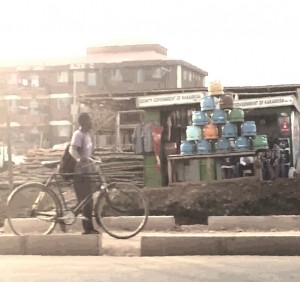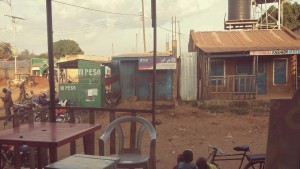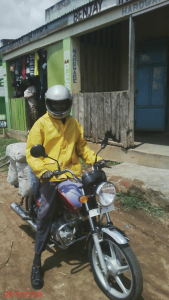 In the first world there are cautionary measures taken for every nonexistent danger. There are screens to keep out harmless insects. There are filters to filter water that is already drinkable. There are shoes to traverse roads that are smooth as a banana peel. There are yield signs suggesting that maybe you should be cautious when entering a line of rapidly-moving, human-controlled metal cages on wheels. Soon the third world will have these superfluous things too.
In the first world there are cautionary measures taken for every nonexistent danger. There are screens to keep out harmless insects. There are filters to filter water that is already drinkable. There are shoes to traverse roads that are smooth as a banana peel. There are yield signs suggesting that maybe you should be cautious when entering a line of rapidly-moving, human-controlled metal cages on wheels. Soon the third world will have these superfluous things too.
Barbara Kingsolver mentions in The Poisonwood Bible that her character who had grown up in the Congo found it strange when she returned to the US and found the curb was painted red because there are so many cars that it had to be designated which are allowed to be parked where. This well illustrates what it means to live in the first world. It’s not so much a series of “taking things for granted” as it is a relatively excessive amount of regulations and precautions.
Now I have returned to the states and am keeping in remarkably constant contact with friends and family I made while in Kenya. Since most Americans have come in to contact with Africans through charitable organizations asking you to feed their children, it is not seen that Africa has smart phones and expensive foreign perfumes and electricity and supermarkets. Certainly the American dollar can purchase more in Kenya than in the America. I hate that my living expenses in one day would support their one week. But soon enough this will no longer be true, because Kenyan workers are quite enterprising.
 This may be somewhat counter intuitive to a first glance at the market place. It may seem as though there is much idling. Indeed the supply of boda boda taxis much overcompensates the demand for them as they congregate at the corners and on Sacco stages, sometimes sitting and waiting for hours for a single passenger. And frequently people miss work for multiple-day funerals or other family-functions. But the intent is there, the will to work is very much there.
This may be somewhat counter intuitive to a first glance at the market place. It may seem as though there is much idling. Indeed the supply of boda boda taxis much overcompensates the demand for them as they congregate at the corners and on Sacco stages, sometimes sitting and waiting for hours for a single passenger. And frequently people miss work for multiple-day funerals or other family-functions. But the intent is there, the will to work is very much there.
 Since it is much less likely in the rural areas that you will be employed by a larger company, you must open your own shop, or raise and sell chickens and eggs in your yard, or burn bricks on your homestead for building, or build and sell benches, or set up Wi-Fi hot spots to be used with the purchase of a soda, or type and print grant proposals, or sell food in the market or at schools, or taxi people on your motor bike.
Since it is much less likely in the rural areas that you will be employed by a larger company, you must open your own shop, or raise and sell chickens and eggs in your yard, or burn bricks on your homestead for building, or build and sell benches, or set up Wi-Fi hot spots to be used with the purchase of a soda, or type and print grant proposals, or sell food in the market or at schools, or taxi people on your motor bike.
In fact, so inspired was I by the convenience and thrill of the motorbike taxis that I got my motorcycle endorsement within a week of being back in the states. “I’m coming home / I’m coming home / Tell the world I’m coming home … The week after I got back / I never felt so strong / I feel like there’s nothing that I can’t try.” Words of wisdom from Diddy. Likely I would never have done this otherwise, nor do I even have the means to purchase and maintenance a bike now to practice. But when I return to Kenya – it will be on a motorcycle. Just in case I’m not stared at enough already.